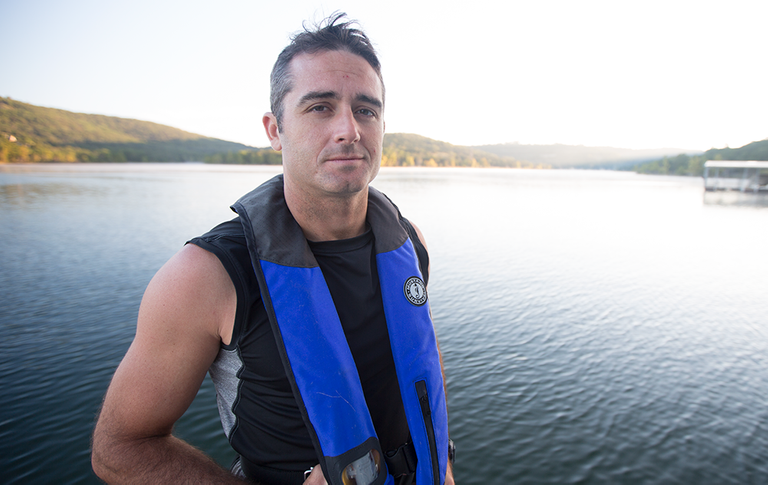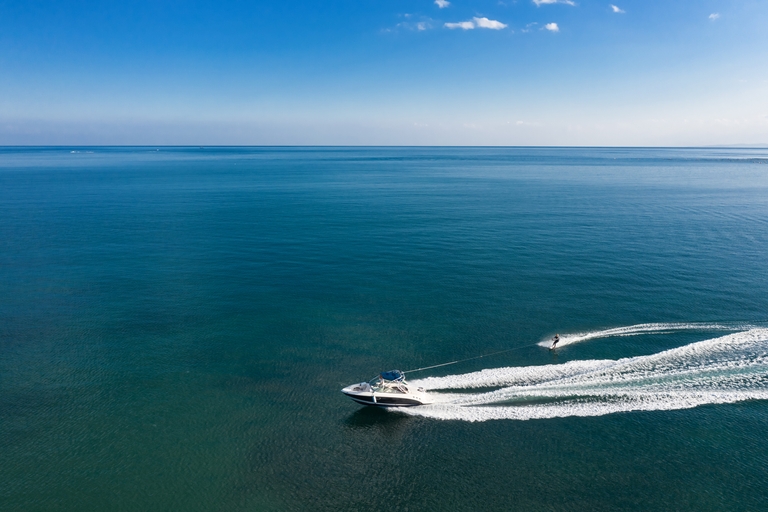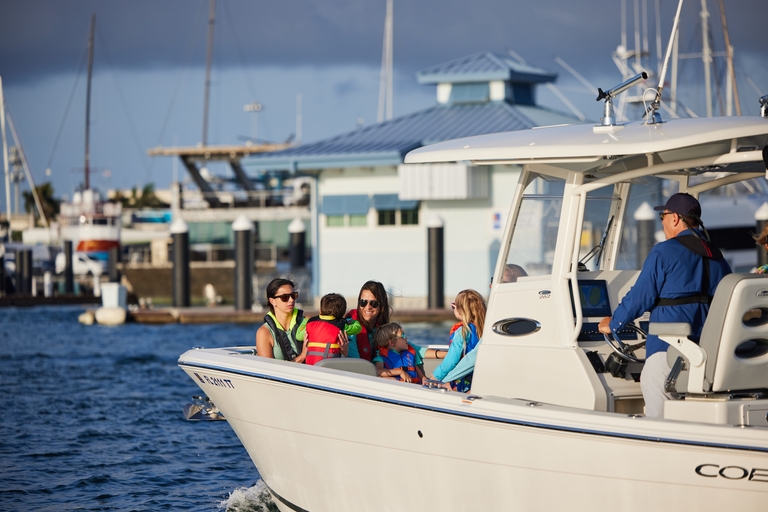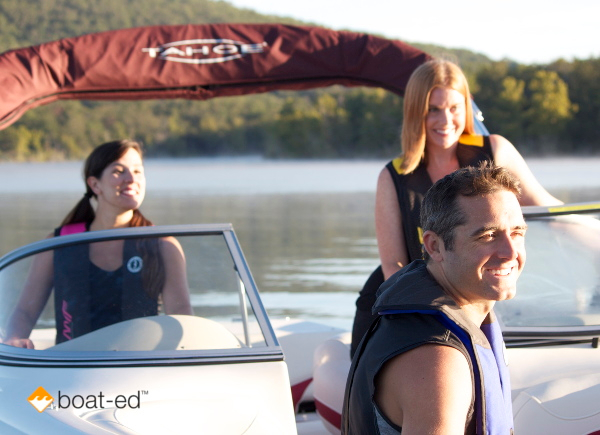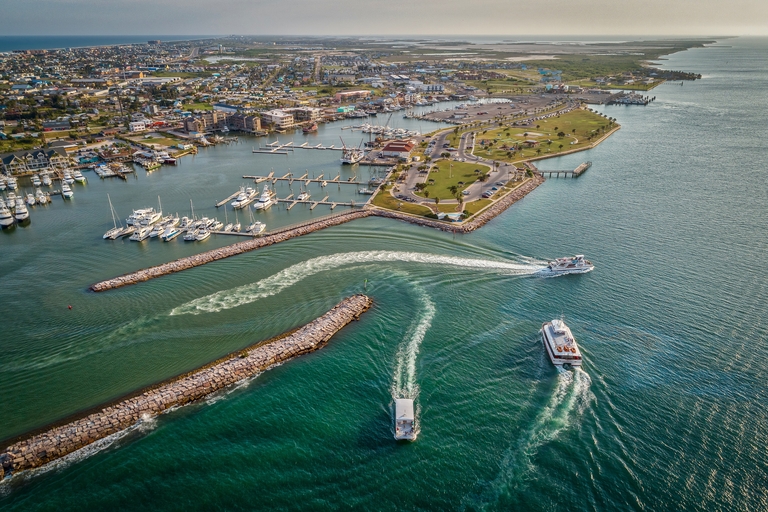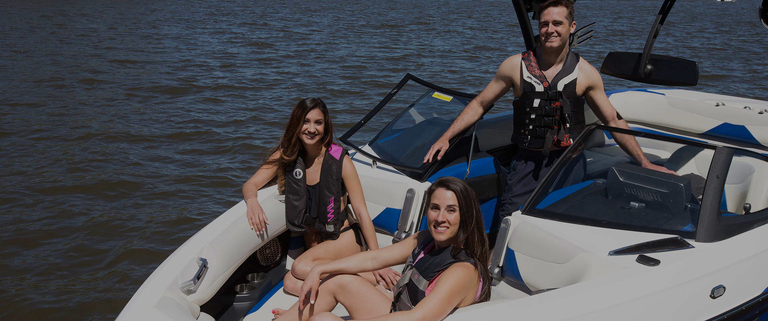Does My Boat Need a Fire Extinguisher?
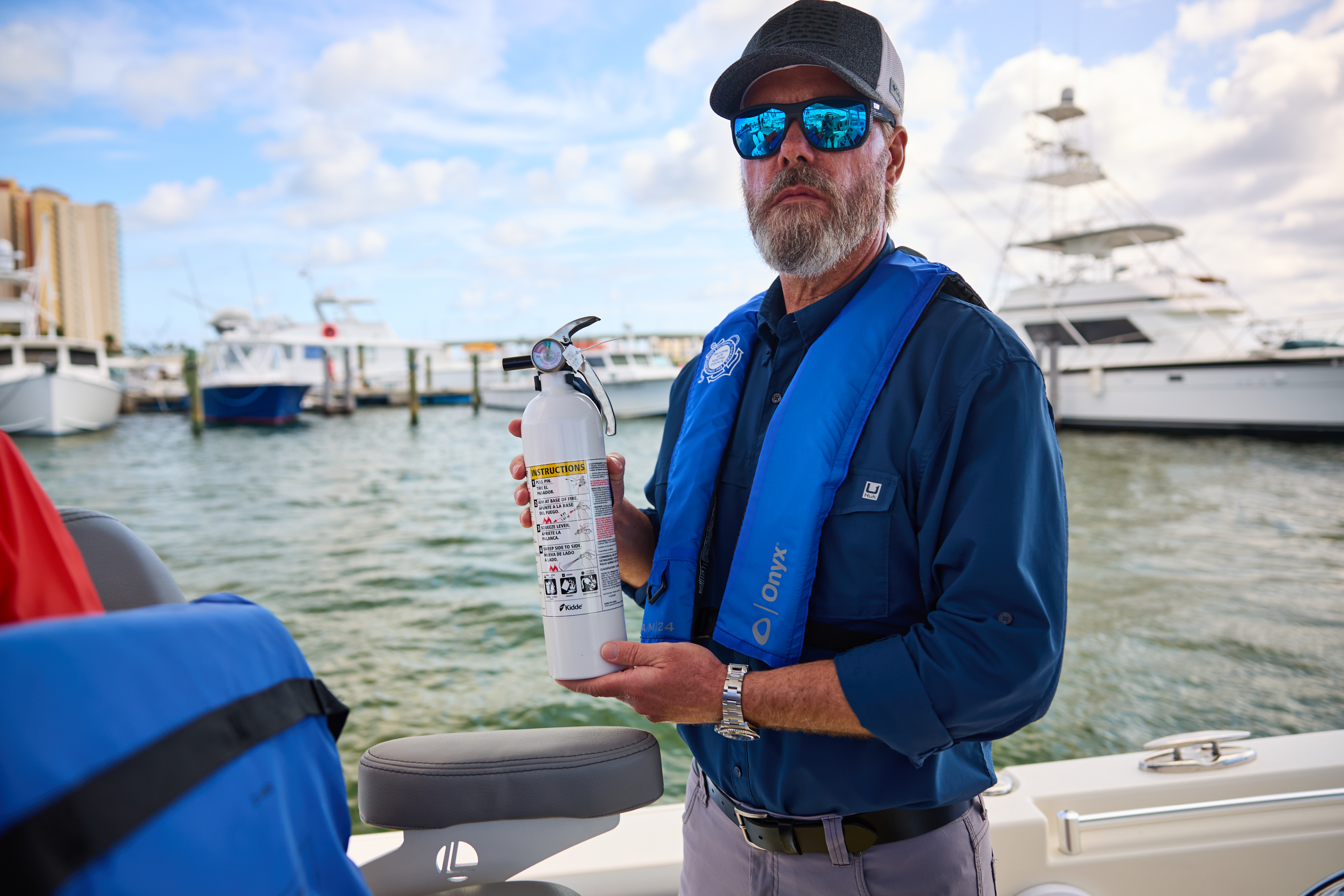
A fire extinguisher is one of the most important safety items to carry on your boat. Of course, the legal requirements surrounding extinguishers can differ based on the country and region you're in and the size and type of boat you're operating.
Since regulations vary, boat owners must understand the specific rules that apply to them and their situation. Before you head out on the water, consider many boating safety tips, including having the right type and number of extinguishers.
Here's what you'll want to consider if you're not sure if your boat needs a fire extinguisher.
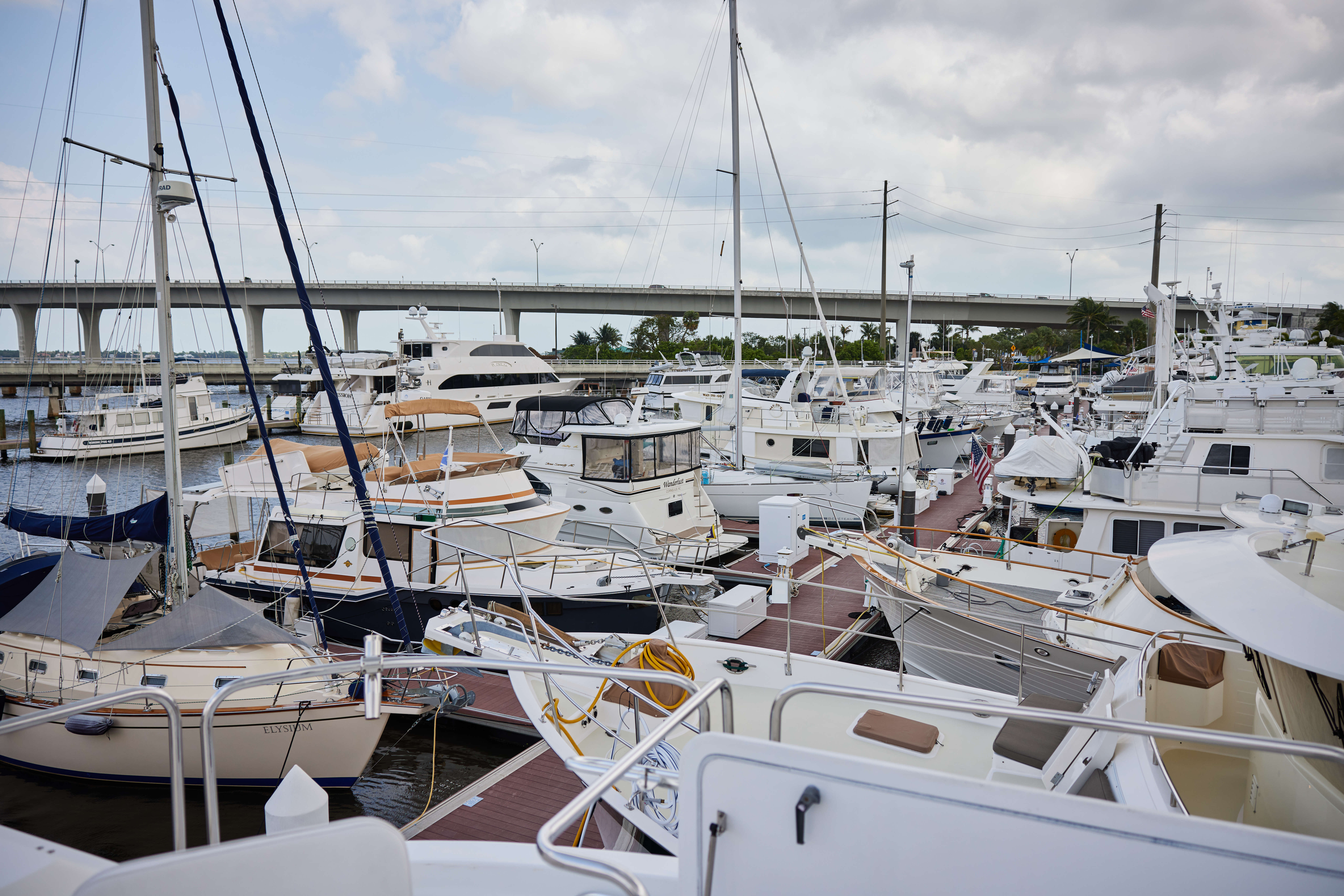
The Type of Boats
The boat size you're driving affects the need for an extinguisher.
Larger vessels have more detailed and stringent safety requirements, which often include the need for multiple extinguishers. However, yHowever, you won't have the same requirements if you have a small boat like a canoe or kayak.
Generally, if your boat is under 26' and has no enclosed spaces where fuel vapors can become trapped, has portable fuel tanks, and uses an outboard engine, you won't have to carry an extinguisher. However, that doesn't mean taking one is a bad idea, or you should avoid doing so.
You can always have additional safety equipment onboard any boat.
Consider Fire Risk Factors
Even if your boat isn't required to have an extinguisher based on its size, you may want to consider the risk of fire and if you're prepared to handle one.
Some significant fire hazards on boats include engine malfunctions, electrical issues, fuel leaks, and cooking accidents. Problems can occur no matter how careful you are, including the risk of fire. Even though the risks can be lower on a ship than in a building, the consequences of a fire at sea can be more serious.
That's generally because there are limited escape routes, fewer resources, and fewer options to escape the fire itself. While you can technically jump into the water to escape a boat fire, many waterways also have hazards. Additionally, the fire can spread along the water's surface due to oil leaking from the boat.
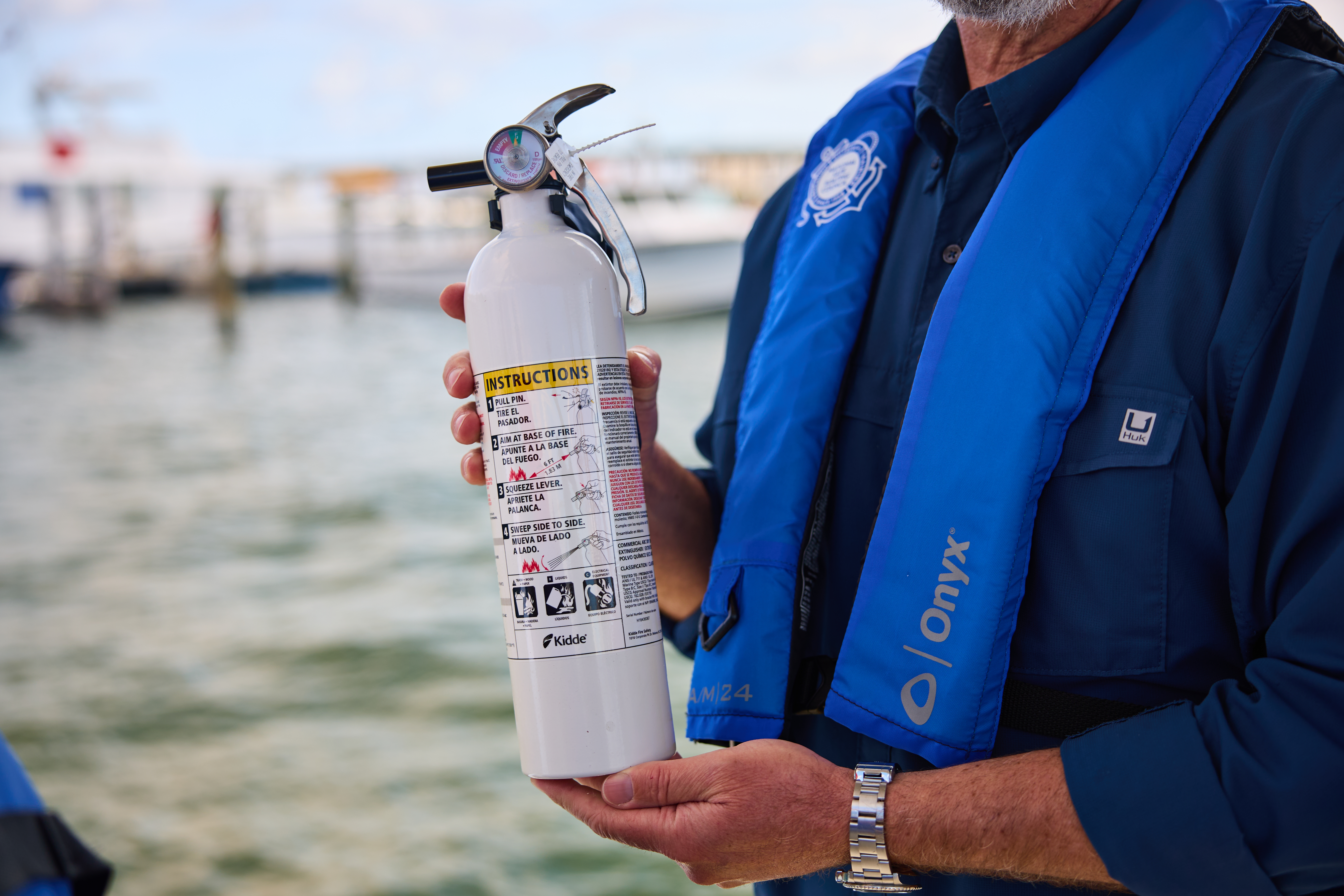
What are the Types of Fire Extinguishers?
Which extinguisher do you need for your boat? Different types of extinguishers are available, and you need to find the right ones for your boat.
If your boat is registered in the United States, your fire extinguisher should be Marine Type – USCG Approved. If you're in another location, choose an extinguisher approved by the proper governing body.
Also, you'll want to know what kinds of fires the extinguisher is rated for. ABC dry chemical extinguishers are versatile and practical for combating fires, including those caused by combustible materials, flammable liquids, and electrical equipment. They're good, multi-purpose options.
Placement and Accessibility
Having the right type and number of extinguishers is only the first step. You also need to be sure they're adequately installed in easily accessible locations on your boat. They should be strategically placed in areas where fires are most likely to happen, typically the galley, engine compartment, and areas near fuel tanks.
Remember: if you can't get to your extinguisher during an emergency, it can't help you.
Even if you purchase a boat with extinguishers installed, look at their placement and determine whether they should be moved before you head out on the water.
The time to check and adjust placement is before you need it.
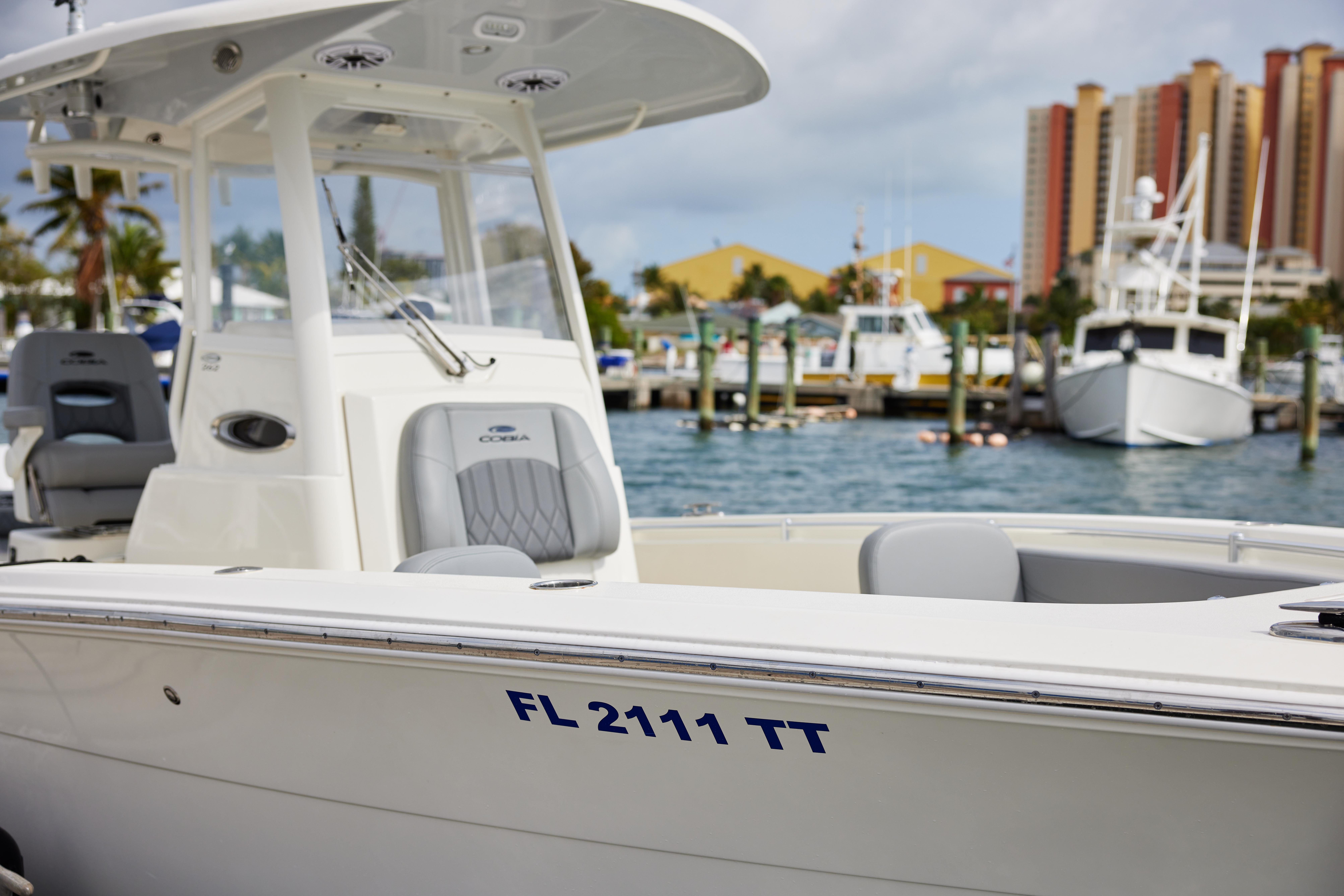
Fire Extinguishers Need Maintenance and Inspection
Extinguishers don't last forever and eventually must be serviced or replaced. They also need proper maintenance to ensure they last as long as possible and will work when needed. Be sure to check the pressure gauge, inspect the extinguishers for signs of corrosion or damage, and verify the expiration date.
For example, if the fire extinguisher is non-rechargeable and Underwriters Laboratories Inc. trademarks it, it's suitable for 12 years. The manufacturing date is stamped on the bottom, and it has to be removed from service if it's past that date. It's very important to make sure your extinguishers aren't outdated.
For rechargeable extinguishers, getting them serviced on a regular schedule and properly tagged helps ensure that they'll be in good working order if a fire breaks out on your boat.
Training and Preparedness
Another extremely important aspect of boat extinguishers is that you and your passengers need to know how to use them. If you can't use them correctly in an emergency, they aren't effective as a safety measure for your boat.
As a boat owner or operator, you should undergo some level of training on how to use a boat's fire extinguisher in an emergency. This can be as simple as taking a course through Boat-Ed that covers this safety essential.
Having an emergency action plan in place and practicing drills with all your passengers is also a good idea. That way, you can feel confident that everyone knows what to do if a fire breaks out onboard.
Additionally, if everyone on board has taken a boating education course, they are well-equipped to use a fire extinguisher when needed.

Learn More About Fire Extinguisher Use and Safety With Boating Education
Understanding the type of fire extinguisher your boat needs and how to use it if needed is only one aspect of staying safe on the water. Boaters should also understand the type of lifejacket they need, how to observe a boat's capacity guidelines, how to navigate around other boaters on the water, and more aspects of safe boating.
Boaters and watersports enthusiasts can learn everything they need to know and get safety certified through Boat-Ed. With one of our state-approved courses, you'll have the information you need to protect yourself and others when boating. If you plan to spend time on the water, a certification course can increase peace of mind and make your boating adventures more fun.
Find the course for your state or choose our Boat-Ed course for Canadians, and start learning with our free online study guides.

